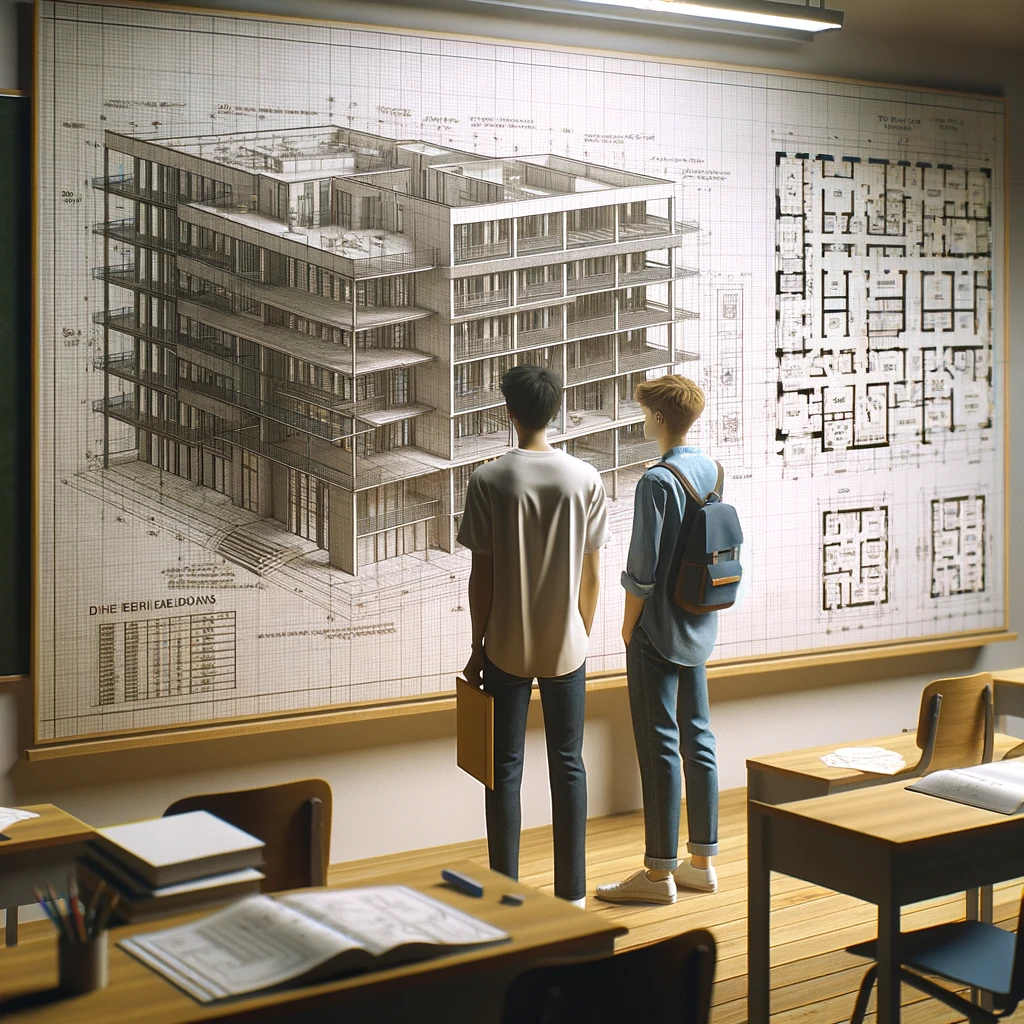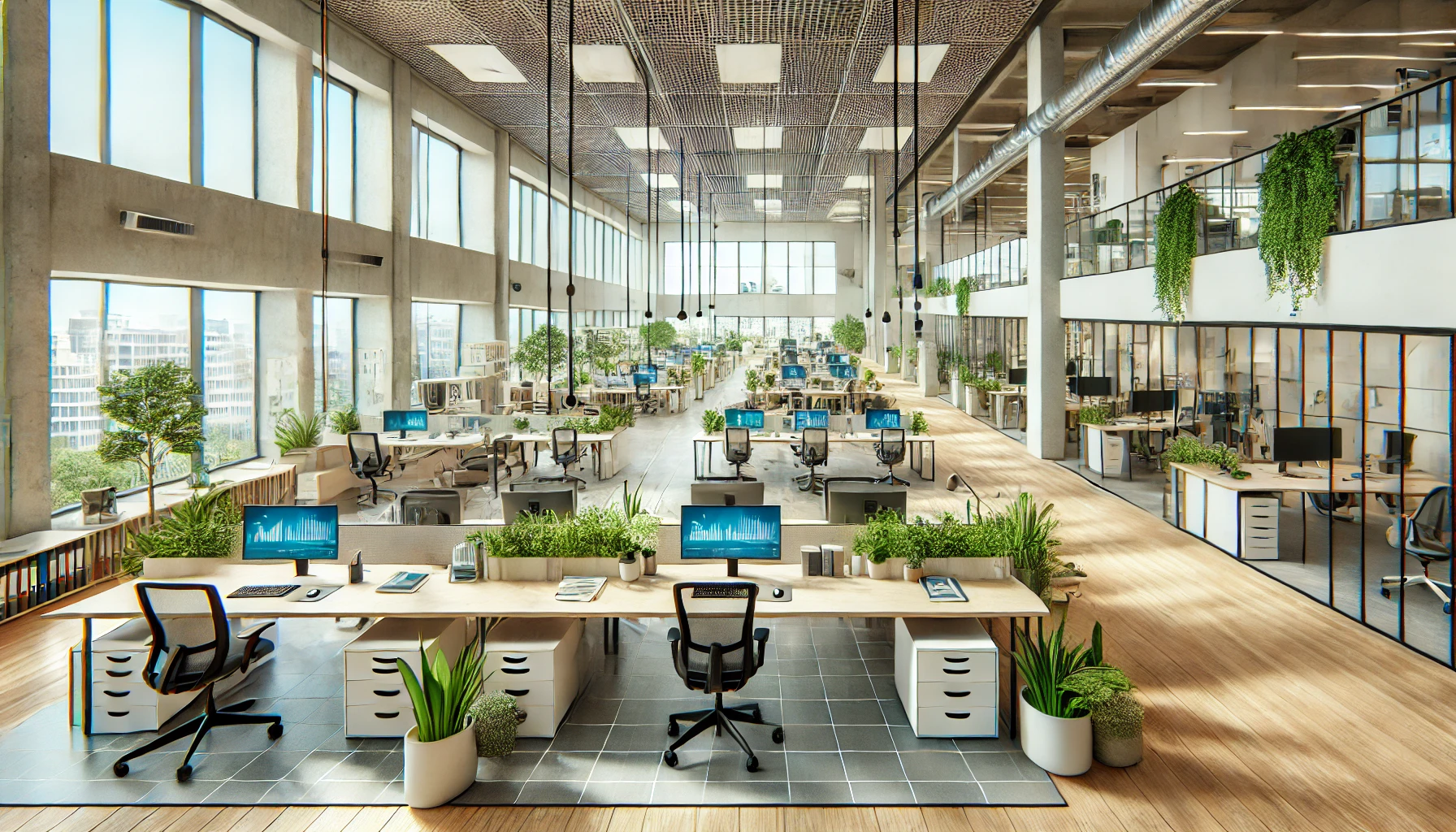Harz University of Applied Sciences: Students encourage to save space

Many municipalities are dispersed – in the truest sense of the word. Administrations have several locations and therefore take up large amounts of space. At the same time, the future of work has relied on hybrid forms since the pandemic at the latest, leaving workplaces largely empty. How are these two facts connected? Students at Harz University of Applied Sciences investigated precisely this area of conflict.
Renewing office structures by working from home?
A trend not only since coronavirus: Hybrid working, which involves alternating between working from home and the office, has established itself as a forward-looking standard. The advantages are clear: For many employees, it makes it easier to combine family and career, while at the same time saving CO2 due to the lack of commuting.
Hybrid working models also have a positive impact on companies, as the increased absences reduce energy consumption, free up unused space for disposal and thus reduce operating costs.
But can this working model also be implemented for municipal administrative bodies? This question was posed by a group of committed students at Harz University of Applied Sciences – in cooperation with Dr. Oliver Junk. Over the course of two semesters, the research group examined eight local authorities to determine the extent to which administrations with home office arrangements offer opportunities to save space.
Hybrid work for everyone
The results of the study are clear: The hypothetical hybrid working model showed potential for considerable savings in all municipalities. This could be achieved by downsizing individual locations and – for example – organizing them in a central building so that real estate can be handed over completely.
The focus here is on adapting internal processes and administrative culture. The reason: If a public authority opts for hybrid working, the strict individual office loses its significance. Instead, activity-based spaces are used: desk-sharing systems, individual workstations, meeting spaces.
No modernization without hurdles
So why hasn’t the switch to hybrid working at municipal level happened long ago? Because progress often encounters difficulties: Harz University of Applied Sciences identified three obstacles faced by public bodies:
- Lack of resources: fundings are scarcity
- Outdated leadership: insufficient willingness on the part of managers to overhaul existing structures
- Different status quo: high discrepancies between the individual municipalities in aspects such as digitalization, structural condition of administrative buildings, desire to work from home and technical office equipment
It is therefore almost impossible to implement a standardized approach. Instead, it is the individual task of each local authority to analyze their administrative facilities, identify problem areas and implement appropriate solutions.
ReCoTech’s tools are a great support in this endeavor: digital area planning analyzes the existing space and uses algorithms to determine an optimal space structure including open space potential. Smart workplace booking also allows data-based determination of how many workplaces are occupied in day-to-day administration. With that, it becomes possible to create a working environment that prioritizes modern productivity and sustainability.
These articles might also interest you

New Partnership with the City of Böblingen: A Step Towards the Future
We are excited to announce the official partnership between ReCoTech and the City of Böblingen! This collaboration marks a significant ...

GEFMA 130-1 Sets New Standards for Sustainable and Efficient Space Utilization in Real Estate
Space management is a crucial aspect of real estate operations. It encompasses all activities related to the planning, use, and ...
New customer for ReCoTech: Welcome to STADT UND LAND
We are delighted to announce that ReCoTech has gained another significant client: STADT UND LAND Wohnbauten-Gesellschaft mbH. Our innovative workspace ...

